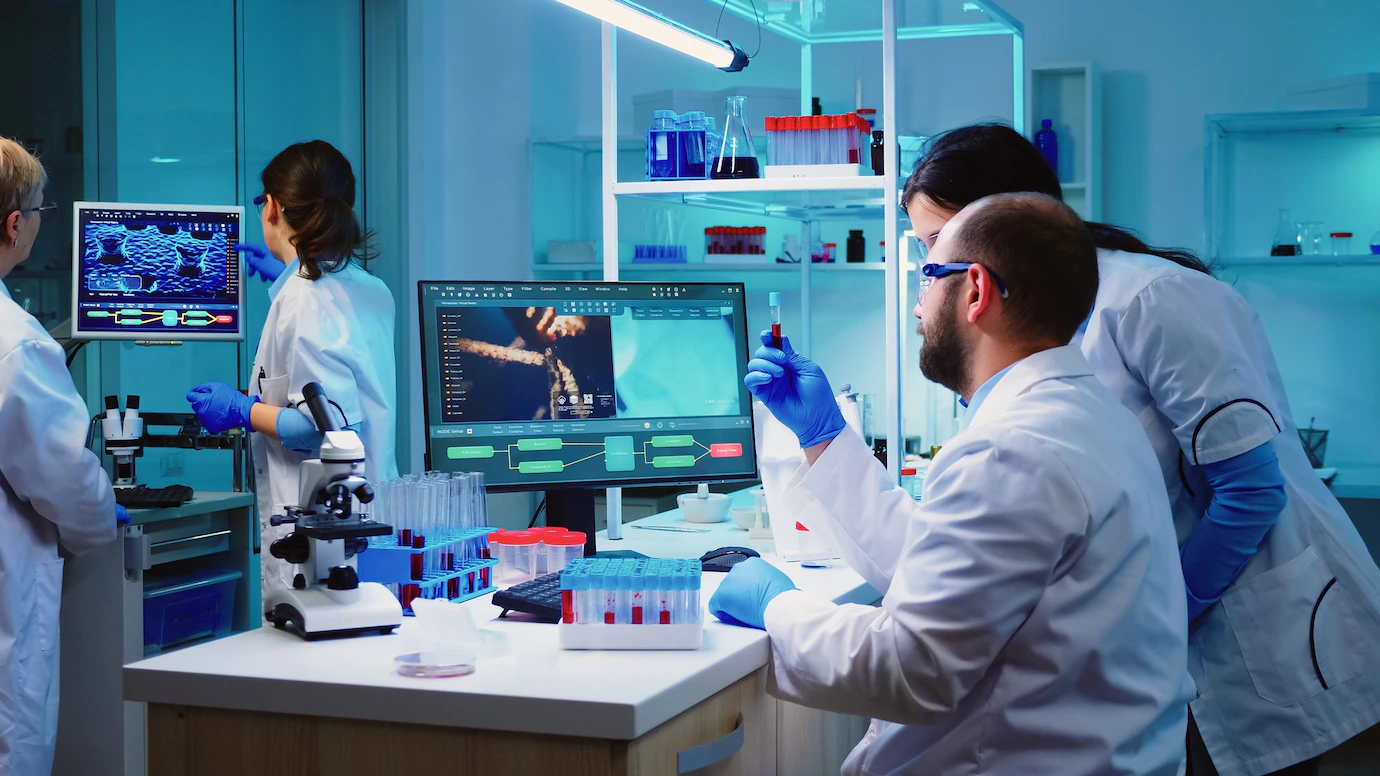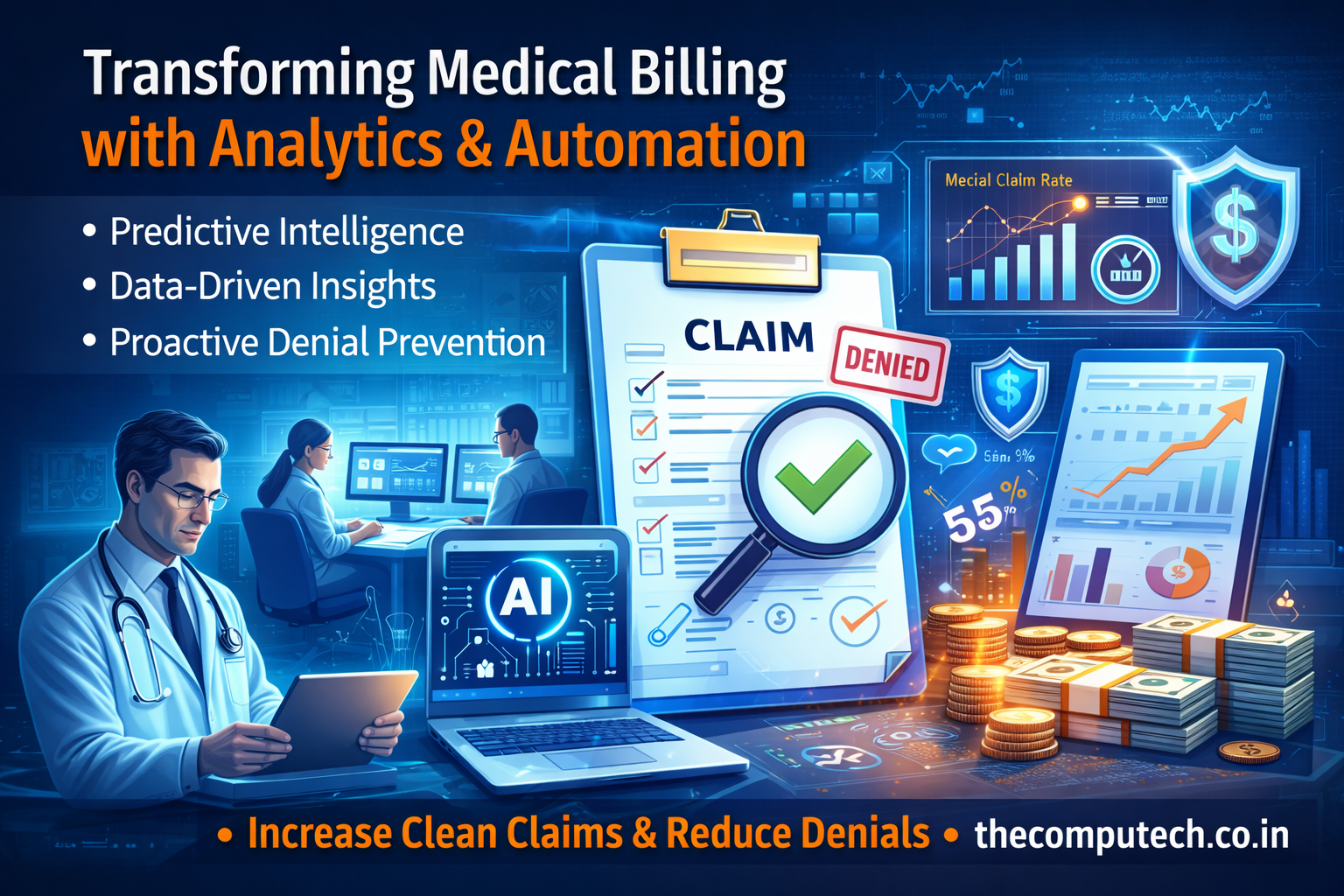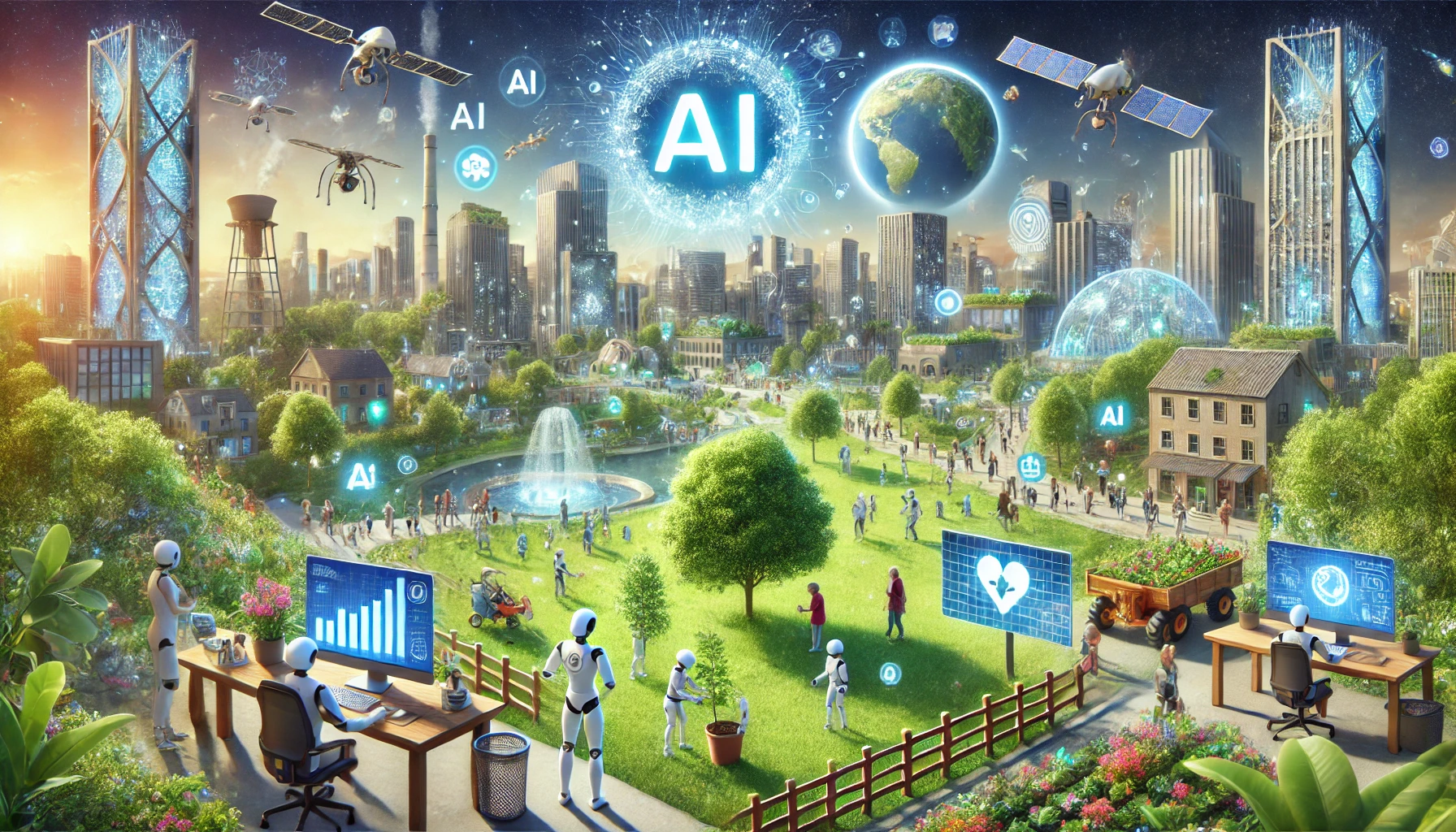Remember those sci-fi movies where robots performed surgery and computers diagnosed diseases? Well, guess what? The future is here, and it’s called Artificial Intelligence (AI). This brainy tech is rapidly transforming the medical field, making it faster, smarter, and even more personalized. Let’s take a peek under the hood and see how AI is revolutionizing healthcare:
Eagle-Eyed AI:
Imagine an X-ray detective so sharp it can spot a rogue tumor hiding in the shadows. That’s AI-powered image analysis! Algorithms trained on mountains of medical scans can detect diseases like cancer, strokes, and even heart problems with superhuman accuracy. This means catching illnesses earlier, treating them quicker, and saving lives.
Drug Design on Fast Forward:
Forget years of lab tinkering – AI can now design potential drugs in a flash. By sifting through mountains of data on genes, proteins, and diseases, AI can predict which drug combinations might work best, speeding up the drug discovery process and bringing new treatments to patients faster.
Your Body’s Best Friend:
No two bodies are alike, and neither should their treatment plans. AI can analyze your unique DNA, medical history, and lifestyle to craft personalized medicine, predicting your risk of diseases and tailoring treatments just for you. Imagine a future where your medication is as unique as you are!
Robots with a Scalpel:
Move over, McSteamy, there’s a new surgeon in town – and it’s a robot! AI-powered surgical robots are bringing precision and control to minimally invasive procedures. These robotic arms, guided by AI algorithms, can operate with millimeter accuracy, leading to faster recoveries and better outcomes.
Therapy in Your Pocket:
Feeling down? Don’t worry, AI’s got your back (or should we say, ear?). AI-powered chatbots and virtual assistants are providing mental health support and therapy, especially in areas where human therapists are scarce. These digital companions can offer a safe space to talk, learn coping mechanisms, and even manage chronic conditions like anxiety and depression.
Of course, AI in medicine isn’t all sunshine and rainbows. There are ethical concerns about data privacy, bias in algorithms, and the potential for job displacement. But the potential benefits are undeniable. AI is poised to democratize healthcare, making it more accessible, affordable, and effective for everyone. So, the next time you visit the doctor, don’t be surprised if AI lends a helping hand (or, well, processing power). The future of medicine is here, and it’s powered by brains both biological and artificial.
Remember, AI is still learning and growing, but the possibilities are endless. This is just the beginning of an exciting journey where technology and medicine join forces to create a healthier future for all.








One thought on “Doctor, Doctor, Give Me AI: How Tech is Transforming Medicine”